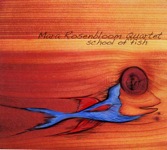Home » Jazz Articles » Extended Analysis » Oscar Peterson: Oscar Peterson: The Complete Clef/Mercur...
Oscar Peterson: Oscar Peterson: The Complete Clef/Mercury Studio Sessions of the Oscar Peterson Trio (1951-1953)
 Oscar Peterson
Oscar Peterson The Complete Clef/Mercury Studio Recordings of The Oscar Peterson Trio (1951-1953)
Mosaic Records
2008
The late Oscar Peterson was technically dazzling, harmonically sophisticated and indefatigably rhythmic. His virtuosic command of the piano has never been questioned. Because of Norman Granz' enthusiasm for his work, Peterson recorded prolifically as soloist and sideman as well as the leader of his own trio. Patterned after Nat Cole's trio, this group featured bassist Ray Brown, guitarists Barney Kessel (eight of the sessions presented here) or Irving Ashby (only one from January 1952) and later, Herb Ellis and was occasionally augmented by a drummer (Alvin Stoller for one February 1952 session) for a long series of recordings that had wide popular appeal. Mosaic has collected the 1951-53 Granz studio sessions in this box set. In these seven CDs, the virtues and failings of Peterson, his sidemen and the producer, are on display.
Peterson was aware of the rhythmic and harmonic innovations of bebop while remaining loyal to the melodic embellishments that characterize Art Tatum's playing at its most ornate. Musicians who recorded with Peterson praised his work, but one wonders now if they did so because he was expertly reliable. On recordings, whether live or in the studios, his tempos never lag, he never falters, his harmonies are always correct. As atmospheric 'jazz' in the background, Peterson's playing is always entertaining. If an idiomatic score was needed for an urban film set in the '50s, this box set would be perfect.
But for all his iconic status as "Oscar," Peterson's style is inescapably rococo. And its sheer density and repetitiveness quickly becomes tedious. Although he admired Count Basie and Nat Cole immensely, he learned little from them. Listening to the Mosaic discs, one wishes (paraphrasing Miles Davis) that Peterson would occasionally lift his hands from the keyboard. Ultimately, his technical skills do little to mask the synthetic nature of his style, which mixes phrases originated by Bud Powell, Tatum, Teddy Wilson, Erroll Garner, Eddie Heywood, Billy Kyle and anonymous cocktail pianists. Had none of these players existed, we surely would hail Peterson as the king of jazz piano. But they did. And the effect, even when Peterson is playing a ballad gracefully, is constricting; after listening to a series of performances, one begins to hear Peterson imitating himself. His improvisatory limitations are especially apparent on six extended early performances (between 10 and 12 minutes) where it is possible to count his favorite phrases, generously offered.
Peterson was also a capable pop vocalist but his voice and approach are so close to Nat Cole's that the latter reportedly asked him not to sing. For his part, Cole whimsically said that he would give up playing piano in exchange. Our loss!
But the set has its own pleasures: Brown's urging, steady sonorous work, Kessel's ringing melodic improvisations. The flexibility and joy they bring to the sessions is admirable. And Granz, who produced many sessions where the allstar names play below their potential, had good taste in material and asked Peterson to improvise on the best popular themes when the 'songbook' concept was new.
John McDonough's characteristically articulate and well-researched liner notes analyze the music as well as the growth of Peterson's reputation from his 1949 arrival on the scene to jazz stardom. But while audiences adored Peterson's safely unchallenging jazz, the critics grew less sympathetic. At length, McDonough earnestly defends Peterson against his detractors rather than letting the musical evidence on the discs speak for itself. Peterson's devoted listeners will purchase this set for its comprehensive coverage and the seven previously unissued tracks, all presented with Mosaic's typical care. Others might think of the pianists Granz employed less often than the nearly-ubiquitous Peterson—John Lewis, Al Haig, Hank Jones, Teddy Wilson, Tommy Flanagan, Jimmy Rowles—and sigh at what might have been.
Tracks:
Disc I: Turtle Neck; It's Easy To Remember; Pooper; Love For Sale; Until The Real Thing Comes Along; You Go To My Head; They Can't Take That Away From Me; There's A Small Hotel; You Turned The Tables On Me; These Foolish Things; I Can't Get Started; Blue Moon; East Of The Sun; The Astaire Blues.
Disc II: Tea For Two; Slow Down; Oh, Lady Be Good; Body And Soul; Stompin' at The Savoy; Rough Ridin'; Just One Of Those Things; Too Marvelous For Words; But Not For Me.
Disc III: That Makes A Difference To Me; Autumn In New York; Pettiford's Tune; You Go To My Head; Thou Swell; Willow Weep For Me; Willow Weep For Me (previously unissued); Minor Blues; Pick Yourself Up; Long Ago And Far Away; Love Walked In; I Got Rhythm; A Fine Romance; A Foggy Day; Strike Up The Band!; The Man I Love; Let's Do It; It Ain't Necessarily So; I've Got My Love To Keep Me Warm; I've Got A Crush On You; Night And Day; Isn't This A Lovely Day; What Is This Thing Called Love?.
Disc IV: Oh, Lady Be Good; 'S Wonderful; Anything Goes; I've Got You Under My Skin; Fascinatin' Rhythm; Cheek To Cheek; I Got It Bad (And That Ain't Good); In A Mellow Tone; I Love You; Somebody Loves Me; I Was Doin' All Right; In The Still Of The Night; Every Time We Say Goodbye; Just A-Sittin' And A-Rockin'; Begin The Beguine; So Near And Yet So Far; Blue Skies; Take The 'A' Train; Sophisticated Lady; Cotton Tail; Prelude To A Kiss; Things Ain't What They Used To Be; Rockin' In Rhythm.
Disc V: Do Nothin' Till You Hear From Me; Don't Get Around Much Anymore; John Hardy's Wife; Always; Easter Parade; Alexander's Ragtime Band; The Song Is Ended; Say It Isn't So; Remember; If I Had You; How Deep Is The Ocean; Streets Boogie; Booker T. Blues; I'm Glad There Is You; Polka Dots And Moonbeams; One For My Baby; I Hear Music; Autumn In New York; I Can't Give You Anything But Love; Spring Is Here; The Things We Did Last Summer.
Disc VI: Pompton Turnpike; Pompton Turnpike (short version excluding Kessel solo); Cherokee; Soft Winds; Soft Winds (long version); Carioca; The Continental; The Continental (long version); Tea For Two (short version, without drums); I Know That You Know; Hallelujah; Yesterdays; You Are Too Beautiful; Isn't It Romantic?; The Sheik Of Araby (vocal, previously unissued); There'll Be Some Changes Made.
Disc VII: Without A Song; Sometimes I'm Happy; Time On My Hands; More Than You Know; This Can't Be Love; Blue Moon; The Lady Is A Tramp; It Might As Well Be Spring; Bewitched; The Way You Look Tonight; Ole Man River; Can't Help Lovin' That Man; The Song Is You; Lovely To Look At; Johnny One Note; Smoke Gets In Your Eyes; Bill; Look For The Silver Lining; The Surrey With The Fringe On Top; Lover.
Personnel: Oscar Peterson: piano, vocal; Barney Kessel: guitar; Ray Brown: bass. Alvin Stoller, drums, is added to this trio on "The Astaire Blues," "Tea for Two," "Slow Down," Oh, Lady Be Good," "Body and Soul," "Stompin' at the Savoy," "Rough Ridin,'" "Just One of Those Things," "Too Marvelous for Words," "But Not for Me." Irving Ashby, guitar, replaces Barney Kessel on "You Go to My Head," "They Can't Take That Away from Me," "There's a Small Hotel," "You Turned the Tables on Me," "These Foolish Things," "I Can't Get Started," "Blue Moon," "East of the Sun."
Track Listing
Turtle Neck; It's Easy to Remember; Pooper; Love for Sale; Until the Real Thing Comes Along; You Go To My Head; They Can't Take That Away From Me; There's A Small Hotel; You Turned The Tables On Me; These Foolish Things; I Can't Get Started; Blue Moon; East of the Sun; The Astaire Blues; Tea for Two; Slow Down; Oh, Lady Be Good; Body and Soul; Stompin' at the Savoy; Rough Ridin'; Just One of Those Things; Too Marvelous for Words; But Not For Me; That Made A Difference To Me; Autumn in New York; Pettiford's Tune (Little Boy); You Go To My Head; Thou Swell; Willow Weep for Me; Minor Blues; Pick Yourself Up; Long Ago and Far Away; Love Walked In; I Got Rhythm; A Fine Romance; A Foggy Day; Strike Up the Band; The Man I Love; Let's Do It; It Ain't Necessarily So; I've Got My Love To Keep Me Warm; I've Got A Crush On You; Night and Day; Isn't This A Lovely Day?; What Is This Thing Called Love?; Willow Weep For Me; Oh, Lady Be Good; S'Wonderful; Anything Goes; I've Got You Under My Skin; Fascinatin' Rhythm; Cheek to Cheek; I Got It Bad; In A Mellow Tone; I Love You; Somebody Loves Me; I Was Doin' All Right; In the Still of the Night; Every Time We Say Goodbye; Just A-Sittin' and A-Rockin'; Begin the Beguine; So Near and Yet So Far; Blue Skies; Take the A Train; Sophisticated Lady; Cotton Tail; Prelude to a Kiss; Things Ain't What They Used to Be; Rockin' in Rhythm; Do Nothin' Till You Hear From Me; Don't Get Around Much Anymore; John Hardy's Wife; Always; Easter Parade; Alexander's Ragtime Band; The Song is Ended; Say It Isn't So; Remember; If I Had You; How Deep Is The Ocean?; I'm Glad There Is You; Polka Dots and Moonbeams; One for My Baby; I Hear Music; Autumn in New York; I Can't Give You Anything But Love; Spring Is Here; The Things We Did Last Summer; Streets Boogie; Booker T. Blues; Pompton Turnpike; Cherokee; Soft Winds; The Carioca; The Continental; Tea for Two; I Know That You Know; Hallelujah; Yesterdays; You Are Too Beautiful; Isn't It Romantic?; The Sheik of Araby; There'll Be Some Changes Made; Pompton Turnpike; Soft Winds; The Continental; Without A Song; Sometimes I'm Happy; Time On My Hands; More Than You Know; This Can't Be Love; Blue Moon; The Lady is A Tramp; It Might As Well Be Spring; Bewitched; The Way You Look Tonight; Ol' Man River; Can't Help Lovin' That Man; The Song Is You; Lovely to Look At; Smoke Gets in Your Eyes; Bill; Look for the Silver Lining; The Surrey With the Fringe on Top; Lover.
Personnel
Oscar Peterson
pianoOscar Peterson: piano, vocal; Irving Ashby: guitar; Barney Kessel: guitar; Ray Brown: bass; Alvin Stoller: drums.
Album information
Title: Oscar Peterson: The Complete Clef/Mercury Studio Sessions of the Oscar Peterson Trio (1951-1953) | Year Released: 2009 | Record Label: Mosaic Records
Tags
PREVIOUS / NEXT
Support All About Jazz
 All About Jazz has been a pillar of jazz since 1995, championing it as an art form and, more importantly, supporting the musicians who make it. Our enduring commitment has made "AAJ" one of the most culturally important websites of its kind, read by hundreds of thousands of fans, musicians and industry figures every month.
All About Jazz has been a pillar of jazz since 1995, championing it as an art form and, more importantly, supporting the musicians who make it. Our enduring commitment has made "AAJ" one of the most culturally important websites of its kind, read by hundreds of thousands of fans, musicians and industry figures every month.






















